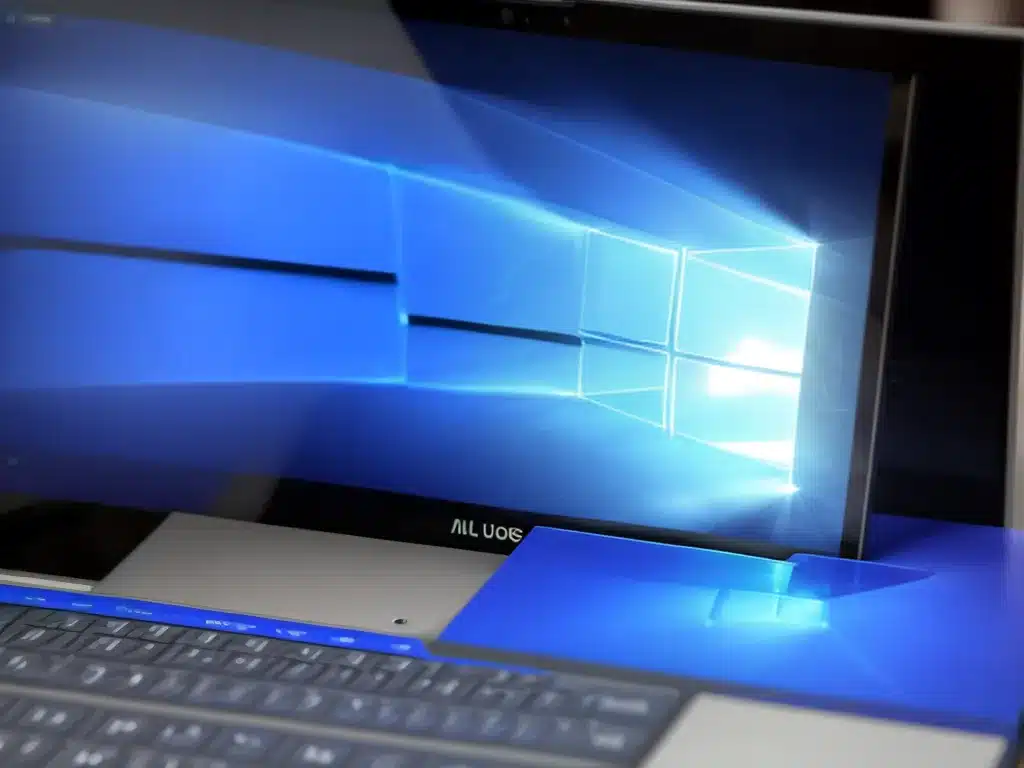
Introduction
Blue screen errors, also known as blue screen of death (BSOD), can be frustrating when using Windows 10. However, there are some steps you can take to fix these errors and get your computer running smoothly again. In this article, I will provide an in-depth look at what causes blue screen errors in Windows 10 and how to resolve the most common ones.
What Causes Blue Screen Errors?
There are a few potential causes of blue screen crashes:
Faulty Hardware
Issues with your computer’s RAM, hard drive, graphics card, or other hardware components can trigger a BSOD. Faulty memory and storage drives are common hardware-related causes.
Driver Problems
Outdated, corrupt, or incompatible device drivers can cause blue screen crashes. Video card drivers, in particular, are a frequent source of BSODs. Keeping your drivers updated can prevent many driver-related errors.
System File Corruption
Critical Windows system files becoming corrupted can prevent Windows from operating correctly, resulting in a blue screen. This can occur from an incomplete update or other system change.
Malware
Viruses, spyware, and other malware can sometimes cause blue screen crashes. Malware may corrupt system files or conflict with driver software.
Overheating
If your CPU or other hardware components overheat, it can cause a blue screen error. Ensure your computer is properly cooled and free of dust buildup.
Fixing Common Blue Screen Errors
Here are some of the specific blue screen error codes and fixes:
PAGE_FAULT_IN_NONPAGED_AREA
This usually indicates faulty memory (RAM) or storage. Run a memory test to check for errors. Reseating or replacing RAM modules can resolve it.
IRQL_NOT_LESS_OR_EQUAL
This is often caused by a faulty driver. Roll back or update any recently installed drivers, especially video card drivers. Disabling antivirus software may also fix it temporarily.
KMODE_EXCEPTION_NOT_HANDLED
Another common driver-related error. Updating drivers, disabling antivirus software, and scanning for malware can fix this error. Also try uninstalling recently added programs or devices.
SYSTEM_THREAD_EXCEPTION_NOT_HANDLED
Points to an issue with system files. Use System File Checker to scan for corrupted files and restore any missing ones. Also check for overheating issues.
VIDEO_SCHEDULER_INTERNAL_ERROR
Indicates a problem with your video card or driver. Try reseating the video card, updating drivers, or rolling back to a previous version. Overheating can also cause this error.
SYSTEM_SERVICE_EXCEPTION
Often caused by a problematic driver or malware. Scan for malware and update your drivers, focusing on any recently changed hardware.
Fixing the Blue Screen Itself
In addition to resolving the specific error cause above, here are some steps to fix the blue screen itself:
- Disable automatic restarting after a blue screen. This lets you read the error details.
- Update Windows and all drivers to their latest versions.
- Run SFC and DISM tools to check system file integrity.
- Clean dust/debris from computer and check CPU temperature.
- Test and replace any faulty RAM sticks or hard drives.
- Roll back recent driver or software updates/installations.
- Boot in Safe Mode to isolate software issues.
Preventing Future Blue Screens
Some best practices to help avoid blue screens going forward:
- Keep all drivers and Windows fully updated
- Only install software/drivers from trusted sources
- Use good antivirus/malware protection
- Don’t overclock processors or GPUs
- Regularly backup critical data
- Maintain good cooling and ventilation
- Don’t ignore initial small issues or crashes
Following the troubleshooting steps for your specific error code, regularly maintaining your system, and practicing preventive measures will help you fix and avoid the Windows 10 blue screen of death. Let me know if you have any other questions!












